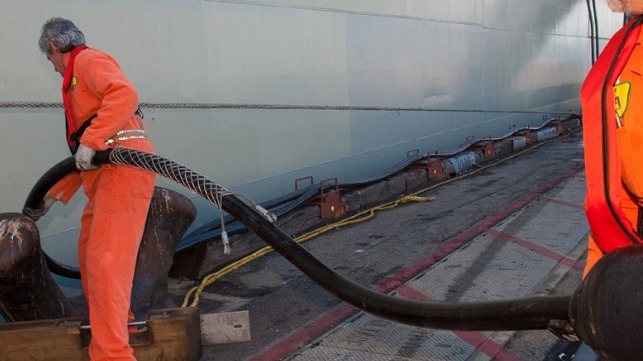Heat Wave Means No Cold-Ironing at Ports of LA and Long Beach

Technologists have long warned that grid power is the biggest infrastructure challenge for operating battery-electric vessels and for setting up cold-ironing for routine vessel calls. This week's power shortage in the state of California has made that challenge even more clear: the ports of Los Angeles and Long Beach have had to temporarily suspend cold-ironing for berthed merchant ships as part of a state-wide power conservation program, according to the Daily Breeze.
California is in the midst of a heat wave, and the state's electrical utilities and distribution grid have been struggling to manage the power demand for extra air conditioning. The system's regulator has responded to the challenge with rolling blackouts. On Sunday, California Governor Gavin Newsom signed an executive order that temporarily allows some energy consumers to use alternate power sources in order to reduce pressure on the grid. The order temporarily lifts air quality restrictions on burning fuel for power during peak hours.
In compliance with the order, the ports are asking cargo ships to run their own auxiliary engines while at berth rather than plugging in. Historically, the two port authorities have worked hard to maximize the use of cold-ironing in order to reduce vessel emissions in port. These emissions once played a major role in the Long Beach area's air quality problems, making shore power a top policy priority for the port's operators.

that matters most
Get the latest maritime news delivered to your inbox daily.
“Right now it is a critical time. There has been a long period of really hot days and the energy agencies have indicated there will be times of blackouts. The governor put out an executive order stating that this would qualify as an emergency," said California Air Resources Board freight transport head Bonnie Soriano, speaking to the Daily Breeze.
Grid power is a challenge for vessel electrification in every locality, and the difficulty applies both to rechargeable vessels and to cold-ironing initiatives. A large merchant ship demands power on a megawatt scale, and the number goes up dramatically for a cruise ship or ro/pax ferry with a large hotel load. "The plug-in infrastructure, that's solvable. It's about the grid impact and working with your electric utility," said DNV GL senior consultant Jennifer States at a recent ABB-sponsored panel.
